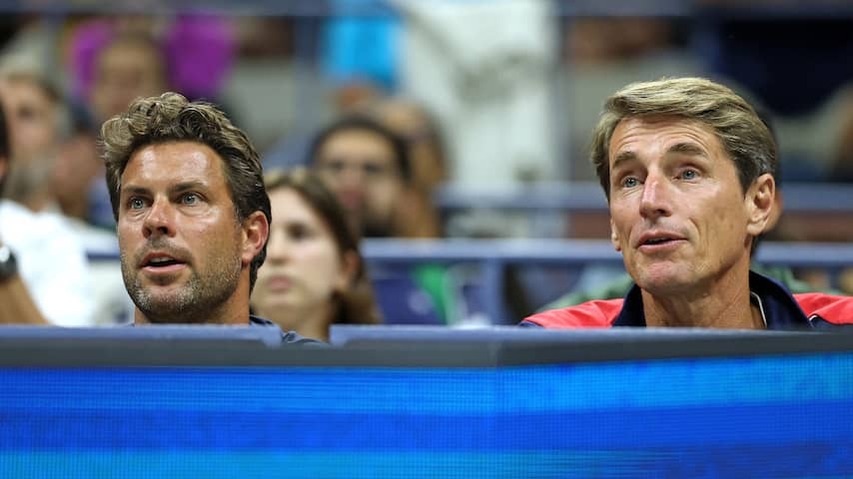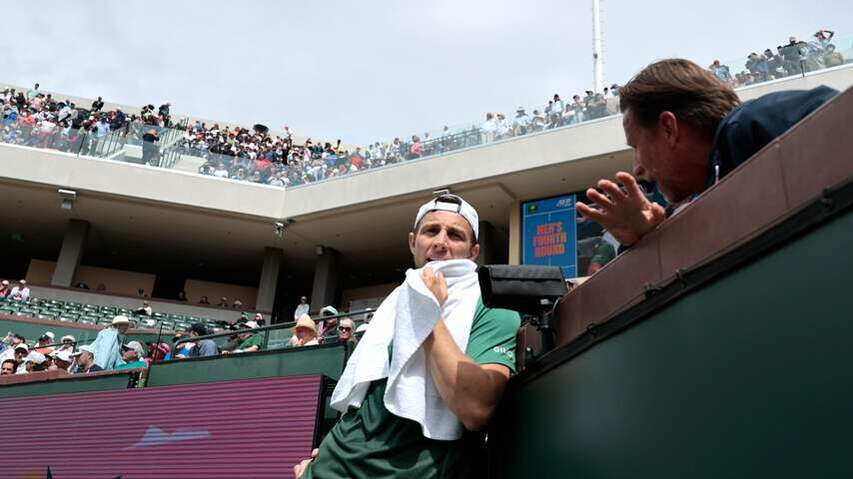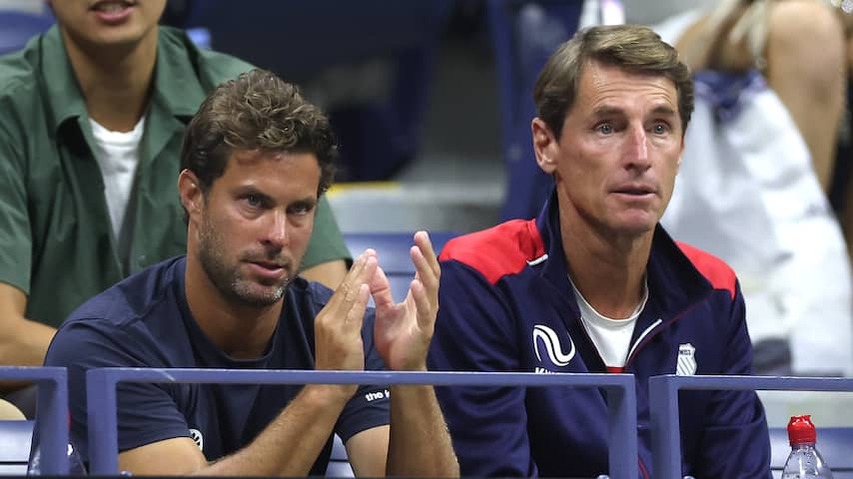
Tallon Griekspoor starts at Roland Garros without a coach. Since May of last year, the best Dutch tennis player has had three coaches, all of whom are now unemployed. “The existence of a tennis coach is very uncertain.”
Griekspoor is not the only one who takes a different path several times in the search for a new coach. “Eight coaches in four years,” writes as US Open winner Emma Raducanu again goes to sea with a new coach in the run-up to Roland Garros.
“That is really hopeless,” says Peter Lucassen, the coach of Botic van de Zandschulp, in an interview with NU.nl. “She has to look at herself. It is not good for a tennis player and coach if you change coaches so often.”
Tjerk Bogtstra, former coach of Raemon Sluiter, Jan Siemerink and Martin Verkerk, is also shocked by the many coaching changes in team-Raducanu. “I do have an opinion about that. I would never choose such a player myself. You want to build a good working relationship with someone. That is not possible if you say goodbye to a coach after two weeks.”
The 28-year-old Griekspoor waved goodbye to two coaches in one month. After a trial period of only ten days, he ended his collaboration with the Belgian coach Xavier Malisse. Barely three weeks later, he parted ways with trainer Dennis Sporrel, with whom he had worked since February 1, 2025.

‘Coach is at the Mercy of the Player’
For the time being, Griekspoor will do it alone for a while, with only his physiotherapist Sebastian Pisano by his side. “Dennis and I parted on good terms,” the tennis player told NU.nl. “It is good like this.”
The experienced tennis coaches Bogtstra and Lucassen are not surprised. “You see this happen regularly on the tour,” says Lucassen. “If you have given it a chance and it doesn’t work, you shouldn’t let it simmer,” adds Bogtstra. “Sometimes it is also good to take some distance and do it alone.”
Yet the coaching changes of Griekspoor and Raducanu raise questions. If the results are disappointing or on a bad day, a player can simply dismiss the coach. “That is simply the risk of our profession,” says Bogtstra.
In almost all other sports, the coach is affiliated with a sports association, team, team or club. “We are at the mercy of the player. They have to pay the salary,” says Lucassen, who has been active on the tour since 2013. “That makes the existence of a tennis coach very uncertain.”
Impossible Balancing Act Between Coach and Player
It is almost an impossible balancing act, says Bogtstra. “It cannot be compared to any other job. You are the manager of a player on a professional level. But on a financial level, the player is your manager. It is a special dynamic. If the tennis player cannot handle criticism well, you can simply be fired.”
And Lucassen: “That is why it is important that you make clear agreements with your pupil.”
Bogtstra and Lucassen often see this go wrong with young coaches. “Especially in women’s tennis,” says Bogtstra. “There are many young boys there who grow from sparring partner to coach. They don’t dare to be critical. They are afraid of losing their dream job.”
“Criticism makes you a better player,” adds Lucassen. “For me it has never been difficult to be critical. Of course it goes with ups and downs and sometimes creates uncomfortable situations. But you have to find a balance.”

‘Minimum Income May Be An Option’
It makes the position of the tennis coach vulnerable. Lucassen: “You are not a football coach. If they leave a player out of the selection, the player can complain, but otherwise they have to accept it. The consequence is not that the coach has to leave the club a day later.”
“If a football coach has to leave, they get a huge bag of money,” says Bogtstra. Erik ten Hag received a severance payment of 17.5 million euros from Manchester United, which he had to share with his equally dismissed staff members.
“That is luxury, we don’t get that,” says Lucassen. “You can make agreements, but that is about other amounts. You hardly have any rights. Sporrel is now at home without a salary, while his former pupil Griekspoor is raking in prize money at tournaments.”
Tennis associations ATP and WTA should offer private coaches more financial security, Lucassen believes. He is also affiliated with the ATP and often hears this topic come up during coach meetings. “Think of a kind of minimum income or insurance if you are suddenly fired. The ATP and WTA have been working on this for a while, but it is difficult to realize.”
Bogtstra thinks such a scheme is a bit exaggerated. “I don’t think that is necessary. You know in advance that you are taking a risk as a coach. Then you also have to dare to stick your neck out. If you want certainty, you shouldn’t become a tennis coach.”